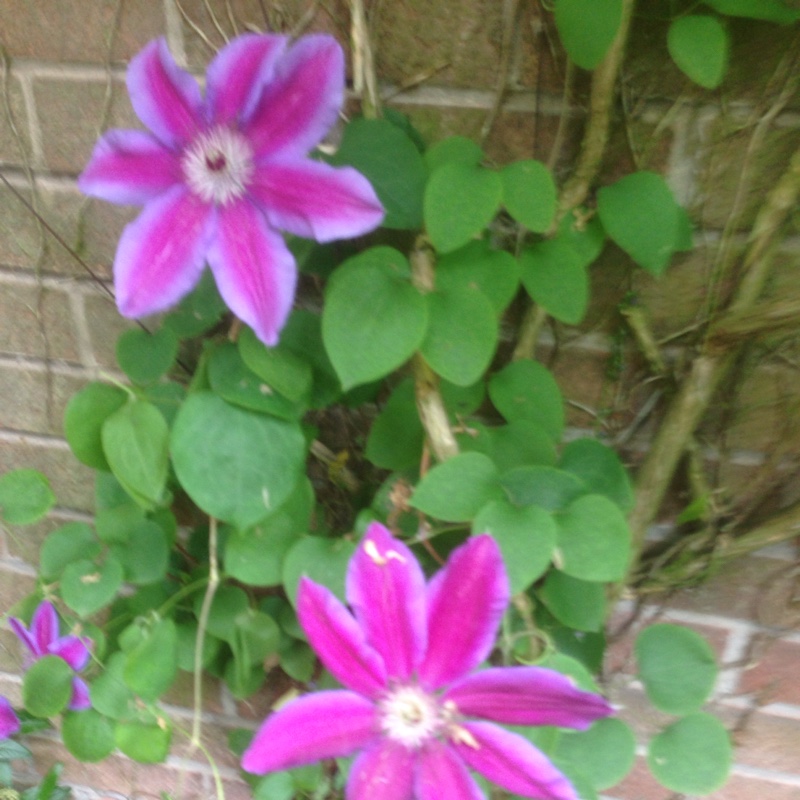
Clematis 'Fireworks'
Clematis 'Fireworks'
Very large lilac-pink petals striped red, and a yellow centre. The blooms first appear in spring and a second show appears in late summer. Suitable for a large container where the plant can be trained on a trellis. Happy in sun or part shade. In the garden, plant in a spot where the plant can climb over a wall or fence, or through a shrub or tree. Group 2
Contributed by @markc
-
Full sun
-
Occasional watering
-
Full Frost Hardy: 5F (-15°C)
-
Moist and free draining
Common name
Clematis 'Fireworks'
Latin name
Clematis 'Fireworks'
type
Climber
family
Ranunculaceae
ph
7.0 - 8.5 Acid - Neutral
Plant & bloom calendar
-
Best time to plant
-
When the plant will bloom
full grown dimensions
 2.00 M
4.00 M
2.00 M
4.00 M
Clematis 'Fireworks'
Very large lilac-pink petals striped red, and a yellow centre. The blooms first appear in spring and a second show appears in late summer. Suitable for a large container where the plant can be trained on a trellis. Happy in sun or part shade. In the garden, plant in a spot where the plant can climb over a wall or fence, or through a shrub or tree. Group 2
Flowering Season
From Early Summer TO Late Summer
Group 2 varieties mostly produce a succession of single, very large flowers in early summer and another crop in late summer, although some may flower continuously through the summer.
Propagation by cuttings
From Late Summer TO Mid Autumn
Semi hard wood cuttings are taken from the current years growth from late summer to mid autumn the bottom of the cuttings is hard and soft on the top. With a sharp knife take a cutting of about 14cms, remove lowest leaves, dip end into rooting hormone, and place round the edge of a pot filled with a suitable compost, water well, they must remain moist till rooted, place under glass but in semi shade.
Planting young plants
From Early Spring TO Late Summer
Soak pot grown new plants well before planting. Dig an over-sized planting hole and mix some good quality organic material with the soil from the hole adding a handful of bone-meal or fish, blood and bone fertiliser. Put some well rotted manure at the base of the hole and cover with soil. Remove the plant from its pot and place in the hole so that the surface of the root-ball is at least 3 inches below the soil level. Fill the space around the root-ball with the soil and organic material mix. Sprinkle some more organic fertiliser around the plant, keeping it away from the stem and water in thoroughly.










